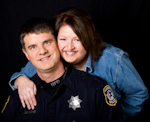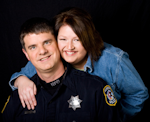Meeting Generational Challenges by Turning Off the Autopilot
Police agencies are fundamentally conservative institutions. What we mean is that law enforcement and those who make their livings in it tend to be strongly attached to and reliant upon tradition, comfortable with the tried and true, suspicious of changes in or challenges to the theoretical foundations on which it has been built or how cops are to do their jobs, and eager to push back against (or at least complain endlessly about) changes to operational expectations suggested or mandated by their administrators, the political class, theorists, or the courts. Of course, there are officers who defy this stereotype but, generally speaking and over time, agencies and cops seek inertia over innovation and the “devils they know” over novelty and new ways.
Police administrators will often present themselves as innovators, or that they enjoy to dance on the cutting edge of theory and practice, introducing the best and most current evidence-based practices to lead their departments into the future, willing to take risks and react nimbly to challenges and fluid circumstances. Surely, some are, and do just that, and we applaud them. Others may be quick to jump on every bright and shiny new idea that floats into their field of vision without first critically assessing it, frustrating their subordinates and reinforcing suspicion of new theories and practice. And some merely pay lip service, only to fall back again on tradition over and over (which can be equally frustrating to subordinates who may actually know change is necessary and desire it).
Police agencies tend to be fundamentally conservative institutions but, as we introduced in last month’s article (Meeting Generational Challenges, Pt I), this preference for tradition and suspicion of change and challenges to the status quo threatens the future of law enforcement when it comes to recruitment and retention of new officers. We often recruit, train, and expect to retain on autopilot, when the current demographics and culture demand a shift in thought and action. As we wrote last month, “…police agencies must learn to likewise break from the autopilot mode many go into when recruiting, hiring, training, and incorporating the new generation of officers into the fold…” We can only do this by adapting to current realities and adopting practices that increase the attractiveness of policing to a shrinking and skeptical talent pool. This article, with its following suggestions, is a challenge to current officers and administrators to break from attachments to tradition and suspicion of change to act in concert and welcome the next generation (and new breed) by accommodating their fundamental needs for purpose and meaning, while protecting and promoting the integrity and high standards of service the profession requires:
Recruit creatively
Expand the definition of “diversity” “Increasing diversity” within an agency is usually framed in terms of increased recruitment and hiring of racial and ethnic minorities, or striving to improve the racial and ethnic ratios within a department to better reflect the community served. Some departments have proactively recruited from the LGBTQ community, specific high population immigrant communities, or sought experienced, older officers from different departments. Despite frequent criticism of diversity hiring, as long as high standards are upheld these are all good and noble ideas. But the definition of diversity can be expanded further.
What if departments sought older, more seasoned workers seeking a career change, who could bring a wealth of outside experience to a department? Why not increase college recruiting efforts, going beyond the traditional CJ target audience into other academic fields to promote public safety as a worthy and solid career path? How about putting money into media outreach, hiring publicists to frame the profession in a way that’s more attractive to the public, and highlighting its appeal to the best and brightest of a shrinking candidate pool.
Practice institutional self-reflection (release the grip of ego) Hubris is the byproduct of unchecked pride and ego. When departments, their administrators, select rank-and-file members deemed “elite” or untouchable, or others within an organization have or develop a prideful “we know best” approach, imperviousness to both outside criticism and internal self-reflection can follow. In some cases, questioning or critiquing the understood wisdom of the brass or elites is actively discouraged or even punished. This is off-putting to subordinates and others not “in the inner circle”, who may actually “know best.”
Bosses must be open to challenges, agencies to critique, and all of us to the harsh light of self-reflection. From a recruitment and retention standpoint, we must all consider that what has worked in the past may be obsolete now, and the younger generation of recruit is likely to have little time or patience with the institutional hubris a lot of us have come to take for granted.
Seek input and engagement from all experience and knowledge levels Supervisors and administrators have always loved to tout their “open door policy” or that they “value input from everyone in the organization.” Every so often you’ll even find one who means it!
Strong leaders know their limits, recognize the wealth of experience and knowledge in those they lead, and solicit (and reward) it. They understand lack of law enforcement experience doesn’t necessarily mean lack of life experience or technical or theoretical knowledge, or does youth equate ignorance. Strong leaders know how to follow when needed, can lead from behind when allowing another to take point is recommended, and never feel threatened by a subordinates greater skill or knowledge.
Anyone can be trained to be an effective manager but, if you are in a supervisory role, choose to be a strong leader. Cops know the difference, and younger cops and candidates desire strong leaders who will value and develop their gifts.
Accept – and promote – innovation and “Out-of-the Box Thinking” Likewise, supervisors and administrators have always loved to say they value innovation and out-of-the-box thinking. Hardly ever will you find one who means it!
Again, police agencies are fundamentally conservative institutions, so innovation and out-of-the-box thinking often create anxiety, anxiety leads to inaction, and the agency relies on accepted default modes to regain or maintain momentum. Innovators are marginalized, become frustrated, and learn to “shut up and get with the program” to avoid future frustrations or possibly being ostracized.
Repeating this pattern into the future doesn’t bode well for policing; the next generation of police candidates are accustomed to having their voices heard, expect respect, and all indications point to a willingness to walk if their professional needs aren’t met. Not merely desires, understand, but needs in order to remain connected. The old ways will no longer suffice as demographic shifts redefine the power structures across all fields, including law enforcement.
Put limits on respect for hierarchy (?!?!) Police departments are organized along paramilitary lines, so of course hierarchy is important and must be respected for optimal and orderly functioning. It is the idea, either formally declared or informally adhered to, that respect an individual is earned merely by attainment of rank, or that the possession of certain gold baubles on a collar somehow confers the Wisdom of Solomon that prevails in many departments and must die.
Respect for hierarchy has its place, and we’re not suggesting otherwise, but knowledge, effort, skill, and experience demand respect, as well. A wise and respectable hierarchy will model and promote that respect, and wield its own power with humility.
__________
When we refer to the “Being on Autopilot” in the context of law enforcement agencies we are talking about holding tight to tradition and what is comfortable at the expense of staying nimble and adaptive to the cultural and demographic changes that will challenge us moving forward. Each of the suggestions above both challenges a specific piece of the status quo while offering specific and simple fixes to promote change.
Abraham Maslow’s famous Hierarchy of Needs addresses human motivation, and has at the top of its hierarchy pyramid the psychological need for Esteem (prestige, sense of accomplishment, recognition of contributions) and the self-fulfillment need of Self-Actualization (reaching one’s full potential, finding and offering meaning and value through creative application of gifts). These are need area police departments have often failed, and continue to fail, to meet in their officers. It is also one in which departments will need to do better in order to not only hire the best, but retain and nurture them, something that will be demanded by future officers.
Our suggestions, which can be applied at all levels of leadership and mentorship, are designed to do that while correcting past and current mistakes that have hurt so many officers.

Michael Wasilewski
Althea Olson, LCSW and Mike Wasilewski, MSW have been married since 1994. Mike works full-time as a police officer for a large suburban Chicago agency while Althea is a social worker in private practice in Joliet & Naperville, IL. They have been popular contributors of Officer.com since 2007 writing on a wide range of topics to include officer wellness, relationships, mental health, morale, and ethics. Their writing led to them developing More Than A Cop, and traveling the country as trainers teaching “survival skills off the street.” They can be contacted at [email protected] and can be followed on Facebook or Twitter at More Than A Cop, or check out their website www.MoreThanACop.com.

Althea Olson
Althea Olson, LCSW and Mike Wasilewski, MSW have been married since 1994. Mike works full-time as a police officer for a large suburban Chicago agency while Althea is a social worker in private practice in Joliet & Naperville, IL. They have been popular contributors of Officer.com since 2007 writing on a wide range of topics to include officer wellness, relationships, mental health, morale, and ethics. Their writing led to them developing More Than A Cop, and traveling the country as trainers teaching “survival skills off the street.” They can be contacted at [email protected] and can be followed on Facebook or Twitter at More Than A Cop, or check out their website www.MoreThanACop.com.


